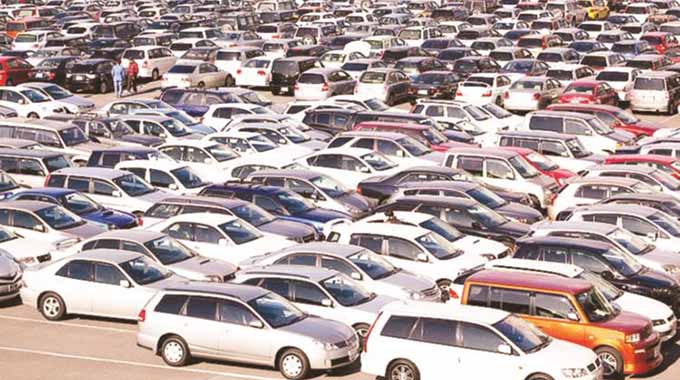Stabilisation measures a step in right direction

Mr Speaker Sir Farirai Machivenyika
The raft of measures that Government has announced should lead to growth if they are implemented to the letter.
Mr Speaker Sir, it is not a secret that the country is facing serious economic challenges that will require every one of us to seriously alter our lifestyle if we are to survive this phase.
It is also not in doubt that there are elements that are sabotaging Government efforts at every turn for their own political ambitions.
MDC-Alliance leader Nelson Chamisa is on record threatening “kudira jecha muhupfu” if he fails in his ambitions for the presidency of the country.
It becomes difficult for some of us not to see his party’s efforts in undermining Government’s policies to turn around the economy.
The thrust of this week’s article however is to look at other initiatives that Government can adopt to strengthen what it has already announced.
Mr Speaker Sir, there have been various initiatives over the years to improve local industry and these include the local content policy and the Buy Zimbabwe campaign.
There was also Statutory Instrument 64 of 2016 to curtail imports for consumption.
These are noble initiatives that have been adopted, but sadly they are not reflected in what Government does in its day-to-day activities.
It’s not a secret that the world over Governments are the major consumers and can influence the growth of their own industries.
That is why Mr Speaker Sir, various countries have legislation on what can and cannot be bought using tax payers’ money.
The embargoes cover products like vehicles, consumer goods like teas and stationery, among others.
There is no reason why we should spend millions of dollars importing mineral water, potato crisps, tea and coffee and even milk.
Mr Speaker Sir, these products are locally available and they would go a long way in ensuring survival of local companies involved in their production if Government and its institutions were compelled to buy them.
What is required Mr Speaker Sir is that Parliament enacts legislation directing the Government to buy locally whenever possible.
The same should apply for vehicles.
The country has several car assembly plants and most of them are facing collapse because of an influx of imports that is draining the country’s foreign currency.
Between 2009 and 2015, Zimbabweans spent over $5 billion importing second hand vehicles and one can only guess how much has been spent since then.
This is money that could have been spent on the productive sector if we had done enough to promote the local car assembly industry.
The President also took the first step when he announced a leaner Cabinet of only 21 ministers.
It is a step in the right direction though some are of the view that it can further be reduced.
Mr Speaker Sir, another issue we also need to tackle head-on is the size of our Legislature.
Given the size of our country, the economy and population, this is an area that we also need to look at.
There is no way Mr Speaker Sir that we can afford the current size of our Parliament.
There are countries that have way bigger economies and populations than ours but don’t have parliaments as big as ours.
Some of these issues, Mr Speaker Sir, will need constitutional amendments but it is one area in which the country needs serious conversations.
Even in the Eighth Parliament, there were MPs who never uttered a single word and it was not noticeable.
It is therefore important that as part of these cost-cutting measures, we reduce the number of MPs.
There have been complaints that the huge number of MPs is not reflected in the quality of debates with only a few of them making meaningful contributions in both the Senate and the National Assembly.
However, most of them are vocal when it comes to issues to do with the allowances and other perks.
It is important that we also have a lean and effective legislature that is also not a drain on the fiscus.
This is important so that the public retains confidence in Government that the austerity measures are not only targeted at them but are being braved by everyone politicians and included.
Mr Speaker Sir, it is also important that Government looks at the public transport system as a matter of urgency.
The demand for fuel has been compounded by the increase in volume of cars on our roads which in turn has been partly caused by a poor public transport system.
In some countries, people do not feel it a necessity to drive to work every day because of the effectiveness of their public transport systems.
This is one area that should be addressed urgently by bringing in buses with large carrying capacities that will not only reduce the cost of transport to the public but also the need for one to drive to work.
An efficient public transport system will also reduce accidents that have also been a cost to the country in terms of seeking medical attention for victims while the fatalities have also robbed the country of some of our best human resources.
Government may start by offering incentives like reduction on duties for those that have the capacity to import buses while municipalities can also venture into this sector as a way of improving their revenues to help in the provision of other services like water and sewer reticulation.
Mr Speaker Sir, there are many recommendations that the public can offer for Government to fine-tune its policies and it’s incumbent on all line ministries to provide such platforms for feedback from the public to improve on policy and decision-making.
Turning around the economy will require efforts from all of us and the best way to improve and retain confidence is by ensuring that the public is involved at every level of decision making or policy formulation.
Zimbabwe has all the tools to turn around the economy; what is needed is everyone playing their part from the ordinary citizens to the decision makers.









Comments